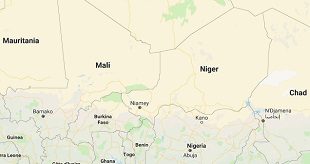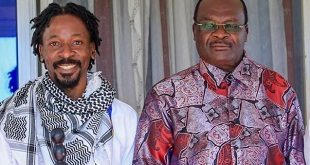
By Peter Nyanzi
In early 1964, units of the British led Uganda Army mutinied, demanding “the fruits of independence” and better working conditions. One of the most respected officers at the time, Idi Amin instigated the mutiny when the British army commander then, Lt.-Colonel W.W. Cheyne resisted the soldiers’ demands. In an interesting turn of events, Idi Amin was proposed as ‘mediator’ between the mutineers and the UPC-KY government. As it turned out, the Milton Obote-led government rather unwisely conceded to the mutineers’ demands with the result that the British officers lost their jobs with Amin subsequently taking over along with a promotion to Major.
Obote’s Uganda People’s Congress (UPC) was a small party though it had a few prominent politicians such as Grace Ibingira, Felix Onama, Mathias Ngobi and Edward Rurangaranga, who were representing their own regional interests. Two other parties – the Catholic-leaning Democratic Party (DP) and the Buganda-sponsored Kabaka Yekka (KY) contested for the pre-independence elections in April 1962. DP unexpectedly won the most seats, but not a majority that would enable it to form a government. Obote saw an opportunity there and maneuvered a UPC/KY alliance. This enabled him to have a majority in Parliament and an appointment as the first Prime Minister. The so-called ‘unholy alliance’ or ‘a marriage of convenience’ would finally end in 1964. It was inevitable.

The advancement of Buganda interests in independent Uganda was one of the key reasons for the alliance and indeed the formation of KY. However, a coalition government involving an executive prime minister and the Kabaka as president was bound to run into rough waters. As much as Obote proved adept at meeting the diverse demands of his allies including Buganda’s claim for special treatment, he found the going difficult when faced with similar demands from other kingdoms. As the man entrusted with running the whole country, he knew that the 12-month honeymoon with Buganda would have to come to an end sooner or later. The Idi Amin factor would prove to be crucial.
Obote saw in Amin, a loyal soldier he would groom as a protégé for his own political survival. However, the move would eventually prove fatal not only to Obote and his young government, but also to the country for many years to come.
Fifty years later, Ugandans and the indeed the whole world are yet to come to grips with the effects of his 9-year reign of terror. It was after appointing Idi Amin as deputy commander in 1964 that the military began to assume a more prominent role in Ugandan politics and become an important tool for winning political contests.
With the army under his control, Obote felt it was the right time to address to address the potentially explosive issue of the “lost counties,” (Buyaga and Bugangaizi), which the colonial government had conveniently postponed for the post-independence government to address. This was also made possible because his UPC party had managed to acquire a majority in Parliament following the crossing of DP members to his UPC. But the real turning point came when several DP members of parliament from Bunyoro agreed to join the government side if Obote would carry out the referendum on the “lost counties,” which they were sure would succeed.
Amidst opposition from Buganda and the threat of civil war, the referendum was held on November 4, 1964 with an overwhelming desire by residents in the lost counties annexed to Buganda in 1900 to be restored to Bunyoro.
This triumph for Obote and the UPC strengthened the central government and threw Buganda and its KY into confusion with the result that many KY MPs “crossed the floor” to join Obote’s UPC.
Naturally, Obote knew that his support in the Buganda region was gone. In response, he ordered the security forces to react with maximum force to any perceived sign of opposition instigated by Mengo. This new policy, which was unprecedented, was starkly demonstrated on November 10, 1964 when the security forces descended on Nakulabye and shot dead six people in what has been referred to as the ‘Nakulabye massacre.’ This was to mark a major turning point in Buganda’s relations with UPC. But with its majority in Parliament, the UPC government was able to have its way. Indeed, the seeds of majoritarianism that we are reaping today under President Yoweri Museveni’s NRM were sown many decades ago. The ruling party thrived but not for long because Idi Amin, Obote’s military protégé, became the ultimate source of disharmony.
Corruption monster
Like it is today, allegations of corruption – sometimes contrived for getting political mileage – were one of the ills that beset post-colonial Uganda and its supposed effects undoubtedly contributed to Obote’s downfall.
Not surprisingly, the root of all this was the fight for political control that started in 1964 when Grace Ibingira replaced John Kakonge as UPC secretary general in the elections held at the party’s annual general meeting at Gulu. After the elections, UPC and Uganda never remained the same. From that time, the government was characterised by three factions namely, Obote’s, Ibingira’s and Kakonge’s.
Coincidentally, it did not take long before key government ministers and army officials, including Obote and Idi Amin, were put on the spot over corruption and smuggling of ivory and gold in DR Congo. The scandal was sparked by an incident when Idi Amin walked into a commercial bank with a bar of gold and demanded for cash in exchange. Amin’s account in the Ottoman Bank was subsequently credited with a sum of £17,000 – a hefty sum of money by then. As expected, a war broke out in the UPC dominated Parliament. Obote’s rivals and Buganda’s friends saw an opportunity to force Obote and Idi Amin out. Although the duo survived, their opponents kept pushing.
On February 4, 1966, with Obote absent from the House, a motion moved by Daudi Ochieng was unanimously passed to have the so-called Congo Gold scandal re-investigated. UPC Secretary General Ibingira successfully instigated a “vote of no confidence” in their leader and the MPs resolved that Amin ‘steps aside’ until investigations are completed. But as it turned out, the ‘Gold scandal’ was a mere façade for an intense power struggle that would end in bloody fashion. Ochieng died of alleged poisoning only a day before he appeared as a witness before the Judicial commission of inquiry that was set up by Obote.
Militarised politics
But the lesson of involving the army in politics –symbolised by the appointment of Idi Amin – would never be lost on Ugandans. Amin became a target of the anti-Obote forces, which wanted to weaken Obote’s influence in the army. But Obote knew their tricks. He promoted Amin to the position of army commander to replace Shaban Opolot, who was known to be pro-Mutesa and Ibingira. A day earlier, on February 22, 1966, Obote had called a Cabinet meeting ostensibly to discuss the way forward after the resolutions of Parliament on the gold scandal. At the cabinet meeting, five of the cabinet ministers, including Ibingira, were arrested. The next day, he shunted Shaban Opolot aside by `promoting’ him to chief of defense staff. Amin was promoted to chief of staff and Oyite Ojok became quartermaster general. Obote then moved to purge his rivals influence from the party and government.
On March 2, 1966 Obote abolished the offices of president and vice president and assumed all executive powers. Then on April 15, 1966 forced parliament to adopt a new constitution which they had not read that came to be called the ‘pigeon-hole’ constitution. With military planes flying over a parliament surrounded by the military, Obote was sworn-in as executive president.
As expected, the Mengo government flatly rejected this. A hastily convened Buganda Lukiiko on May 21 passed a bold or rather misguided resolution that Obote’s government departs from Buganda soil within ten days. Historians say that Mengo expected that the government would panic and ask for negotiations. It badly backfired in a bloody fashion. Instead, Obote on May 24 ordered Idi Amin to attack the Kabaka’s palace and arrest him. This was done ostensibly to forestall a coup plot.
The Kabaka escaped and fled to exile in England where he died three years later. Buganda was divided into four administrative districts and ruled through martial law as UPC became the only legal political party. These events have left a bitter taste in the mouth of Buganda, which might never go away.
But although Amin did an excellent job of containing the crisis, Obote soon started getting concerned about the waning loyalty of his protégé. Obote began to beef up the army with members of his ethnic Luo group – Acholi and Langi – and accelerated their promotions in a bid to counter the large numbers of soldiers recruited by Amin from his own West Nile District. Among those promoted were Tito Okello, David Oyite Ojok and Olara Okello among others. As expected, in October 1970 serious allegations emerged about Amin over corruption. Amin was subsequently put under house arrest but captured power in a military coup in January 1971. Historians such as Samwiri Karugire (“Roots of Instability in Uganda) argue that the events of 1964 unleashed a repressive military-backed political regime that culminated into the coup and the chain of events that followed thereafter.
Under Idi Amin, the killings and terror by the army spread from Buganda to others parts of the country especially Lango and Acholi. Obote, along with some of his top army commanders, went into exile in Tanzania, to join other liberators including Yoweri Museveni, to embark on a protracted struggle to topple Idi Amin’s dictatorship. As Museveni narrates in him book, ‘Sowing the Mustard Seed,’ the struggle against Idi Amin ultimately shaped Uganda into what we see today.
Economic turmoil
Inevitably, Uganda’s economic fortunes were ruined by the political turmoil and economic mismanagement of the 1970s under Idi Amin. Interestingly, the policy framework in the immediate post-independence period was built on the recommendations of a World Bank mission whose implementation also started in 1964. Its focus was on the promotion of commodity exports and the promotion of private investment by encouraging existing investors and creating incentives to attract new ones, particularly local ones. It worked well for the post-independence period (1962-1966). But barely a year after taking power, Idi Amin declared an “economic war” during which more than 50,000 Asians were expelled and their productive and personal assets distributed to government cronies. This affected both agricultural and industrial production through the huge loss in skilled personnel, whose effects are still felt today.
The Asian community, which was in control of commerce and trade, left everything in the hands of inexperienced Ugandans who totally ruined everything. Increased military and other expenditures led to large fiscal deficits, which were financed by government debt with inflation as the predictable outcome. To make matters even worse, a series of negative external shocks during the mid-1970s also contributed to this collapse, including higher oil prices and the break-up of the East African Community.
Inevitably, Idi Amin was overthrown in April 1979 by a combined force of Ugandan exiles, under the umbrella of Uganda National Liberation Army (UNLF), and the Tanzania Peoples Defense Force (TPDF). The UNLF brought together disparate groups, interests and individuals – imagine Obote, Yusuf Lule and Museveni together at the Moshi Conference – but united by the common goal of ousting the Amin regime.
Prof. Yusuf Lule was picked to be in charge of the first UNLF government and quickly appealed to the Baganda sentiments. He only lasted 58 days and was replaced by Godfrey Binaisa, and then Paulo Muwanga who was put in charge of the Military Commission to organise the December 1980 general elections. Obote’s UPC was declared winner of those elections that were generally considered rigged. For a second time, Obote became President of Uganda. Museveni, his partner in the liberation struggle, opted for a guerilla war against him.
Like it was in 1964, Obote put Tito Okello and Olara Okello along with his kinsmen, in charge of the army in an attempt to flush out Idi Amin’s men. Insecurity, fuelled by Museveni’s bush war in Luwero devastated the country.
An estimated 500,000 Ugandans lost their lives. Sharp divisions arose in the army when Obote alienated the Acholi including Olara-Okello and Tito Okello by appointing his fellow ethnic Brig. Smith Opon Acak as army Chief of Staff. There was a huge tribal conflict between the Acholi and Langi. Obote’s own men turned against him.
On July 27, 1985, an army brigade of the UNLA commanded by Olara-Okello, and composed mostly of troops took over power. Parliament was dissolved and a Military Council was established, which Olara Okello and Tito Okello chaired between them. Six months later, Museveni’s National Resistance Army (NRA) captured power on January 26, 1986. Acholi soldiers fled back to their homeland with their weapons and became the seeds from which several rebel outfits in the north sprang up. To this day, the north is yet to recover from the devastation and plunder it has gone through after more than 20 years of insurgency. With the political turmoil of the 1960s seemingly forgotten, in July 2005 a national referendum was held in which the people of Uganda resolved to return to multi-party politics. Though UPC fronted Miria Obote a muganda as its presidential candidate for the 2006 elections, the party got the least votes in Buganda – a clear indication that most populous region had not forgotten the wounds of betrayal in 1964.
In retrospect, it is clear that 1964 was the watershed year in Uganda’s history. We can safely say that it laid the ground for Uganda’s politics until today.
However, Prof. Aaron Mukwaya, a senior political science lecturer at Makerere University, describes 1962 as the year that was the turning point in Uganda’s history. He lays all the blame squarely on the door of the colonialists, who he says did not prepare Africans for the post-colonial period and how they would run their country. “I think it was deliberate,” he says, adding, “The colonialists knew that the Africans would eventually fail to run their country.”
“What happened in 1964 and in 1966 were purely inevitable because there is no way a Republic could have a Kabaka acting both a cultural leader and president of Uganda.”
 The Independent Uganda: You get the Truth we Pay the Price
The Independent Uganda: You get the Truth we Pay the Price


